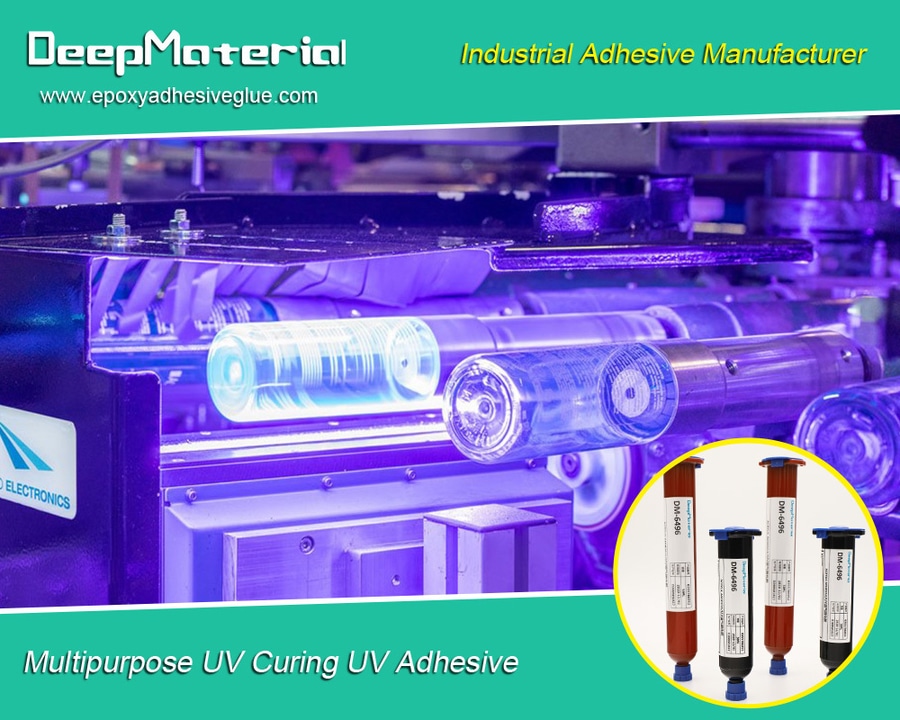
#Industry News
High-Temperature Flexible Epoxy: Detailed Instructions
Best High-Temperature Flexible Epoxy Manufacturer
This blog post provides a detailed overview of high-temperature flexible epoxy and covers its composition, properties, and applications. Additionally, it discusses the benefits of using high-temperature flexible epoxy and compares it with other epoxy types.
INTRODUCTION
Epoxy is a versatile material that is widely used in various industries. It is a thermosetting polymer that hardens when mixed with a hardener. Epoxy has excellent adhesion, high strength, and chemical resistance, making it an ideal material for bonding, coating, and sealing. However, epoxy has a drawback, it becomes brittle at high temperatures. That’s where high-temperature flexible epoxy comes in. High-temperature flexible epoxy is designed to maintain its flexibility and strength at high temperatures. This blog post will discuss high-temperature flexible epoxy in detail and its applications.
Composition of High-Temperature Flexible Epoxy
High-temperature flexible epoxy comprises several ingredients, each playing a critical role in its properties. The main components of high-temperature flexible epoxy are:
Epoxy Resin:This primary ingredient provides adhesion, strength, and chemical resistance to epoxy.
Flexibility:This ingredient improves the flexibility of the epoxy at high temperatures.
Curing Agent: This ingredient initiates the hardening of epoxy and is responsible for its strength.
Catalyst:This ingredient controls the curing time and hardening of the epoxy.
Each ingredient is carefully selected and formulated to achieve the desired properties of high-temperature flexible epoxy.
Properties of High-Temperature Flexible Epoxy
High-temperature flexible epoxy has unique properties that make it suitable for specific applications. The properties of high-temperature flexible epoxy are:
High-Temperature Resistance:High-temperature flexible epoxy can withstand temperatures up to 150°C without losing flexibility.
Chemical Resistance:High-temperature flexible epoxy is resistant to various chemicals, including acids and solvents.
Impact Resistance:High-temperature flexible epoxy has good impact resistance, making it ideal for applications that require shock resistance.
Flexibility:High-temperature flexible epoxy maintains its flexibility at high temperatures, making it suitable for applications where movement is expected.
Adhesion:High-temperature flexible epoxy has excellent adhesion to various substrates, including metals, plastics, and composites.
Compared to other types of epoxy, high-temperature flexible epoxy has superior flexibility at high temperatures, making it ideal for applications that require thermal cycling. However, it has lower strength and stiffness than other epoxy types.
Applications of High-Temperature Flexible Epoxy
High-temperature flexible epoxy has numerous applications in various industries due to its unique properties. Here are some of the industries that commonly use this type of epoxy and specific applications within each industry:
Aerospace:
Composite tooling:High-temperature flexible epoxy is often used to create molds and tooling for composite materials due to its ability to withstand high temperatures and resist cracking or warping.
Adhesive:In aerospace applications, high-temperature flexible epoxy can be used as an adhesive for bonding various materials, including metals, plastics, and composites.
Automotive:
Under-the-hood components:High-temperature flexible epoxy creates gaskets, seals, and electrical components that can withstand the high temperatures of engines and exhaust systems.
Structural components:High-temperature flexible epoxy is also used in structural elements such as body panels and frames due to its high strength and durability.
Industrial:
Coatings:High-temperature flexible epoxy can protect surfaces from heat, chemicals, and abrasion.
Electrical components:In industrial applications, high-temperature flexible epoxy is often used to create electrical components that must withstand high temperatures and harsh environments.
The advantages of using high-temperature flexible epoxy in these applications include its ability to resist thermal cycling, maintain flexibility at high temperatures, and provide excellent chemical and water resistance. Additionally, high-temperature flexible epoxy can be formulated to have a wide range of curing times and viscosities, making it suitable for various manufacturing processes.
Benefits of High-Temperature Flexible Epoxy
Compared to other types of epoxy, high-temperature flexible epoxy offers several advantages, making it an attractive choice for many applications. Here are some of the benefits of using high-temperature flexible epoxy:
Thermal Cycling Resistance
High-temperature flexible epoxy can withstand repeated exposure to high temperatures and rapid temperature changes without cracking or degrading. This property makes it ideal for use in applications that involve thermal cycling, such as aerospace tooling and automotive under-the-hood components.
Flexibility at High Temperatures
Unlike some other types of epoxy, high-temperature flexible epoxy retains its flexibility even at high temperatures. This property is essential in applications where parts need to bend or flex without breaking, such as seals and gaskets.
Chemical and Water Resistance
High-temperature flexible epoxy is highly resistant to chemicals and water, making it suitable for harsh environments. This property is fundamental in industrial applications where components may be exposed to chemicals, oils, and solvents.
Cost-Effectiveness
High-temperature flexible epoxy can be a cost-effective solution for many applications due to its durability and resistance to thermal cycling and chemicals. It can also be formulated to have a wide range of curing times and viscosities, making it suitable for various manufacturing processes.
Environmental Benefits
High-temperature flexible epoxy is often formulated with low VOC (volatile organic compound) content, which makes it a more environmentally friendly choice than some other types of epoxy. Its durability and resistance to chemicals and water can also help reduce waste and maintenance costs.
CONCLUSION
High-temperature flexible epoxy is a versatile and durable material that offers unique advantages over other types of epoxy. Its ability to withstand thermal cycling, maintain flexibility at high temperatures, resists chemicals and water, and be formulated for various manufacturing processes makes it a popular choice for many applications across multiple industries. If you’re considering using epoxy in your next project, high-temperature flexible epoxy may be the right choice.
For more about choosing high-temperature flexible epoxy: detailed instructions, you can pay a visit to DeepMaterial at https://www.h.com/category/epoxy-adhesives-glue/ for more info.





